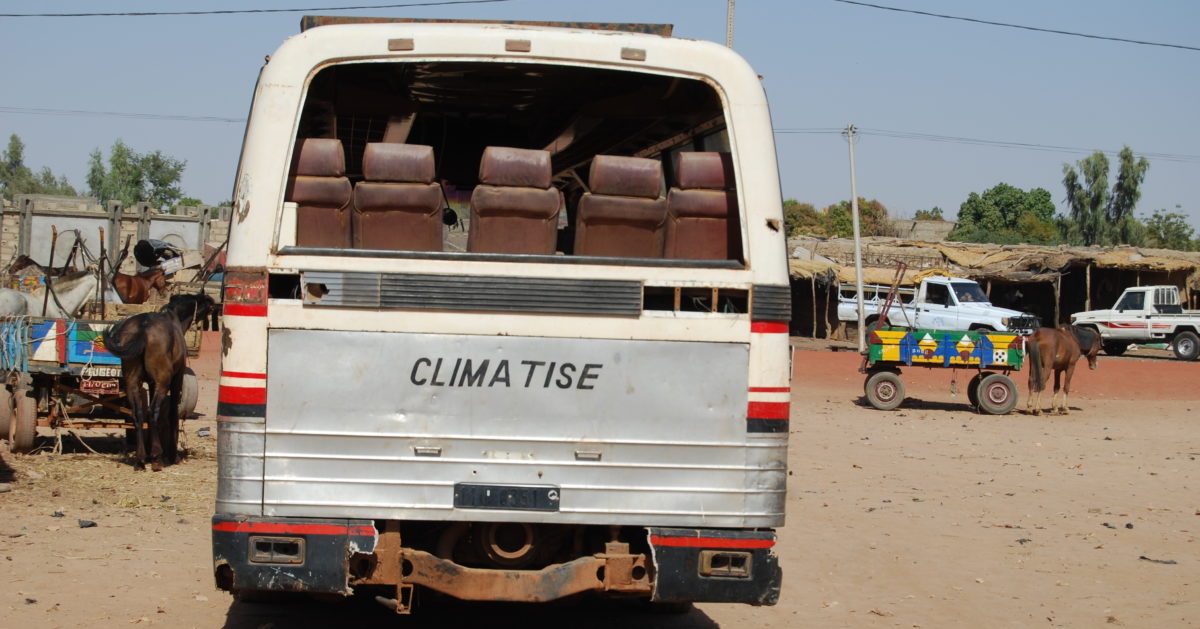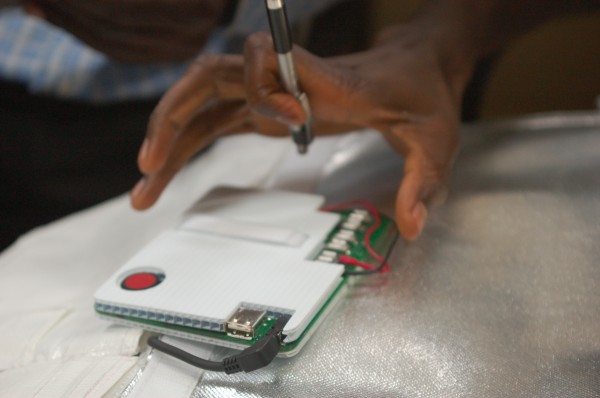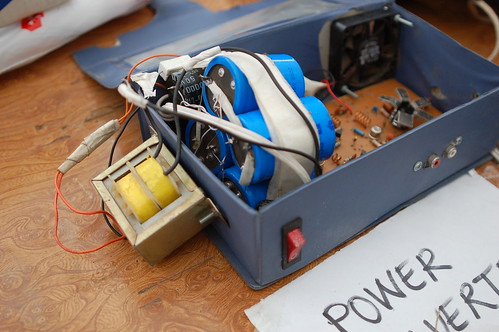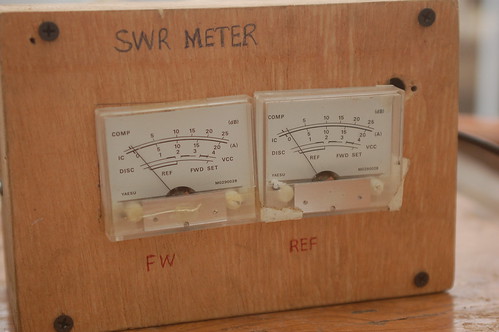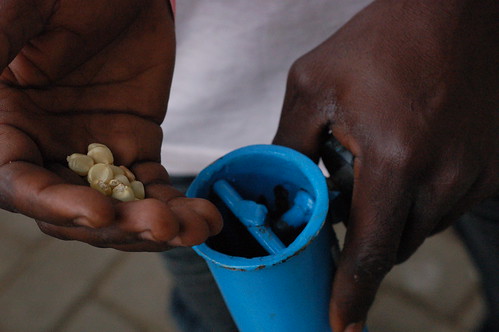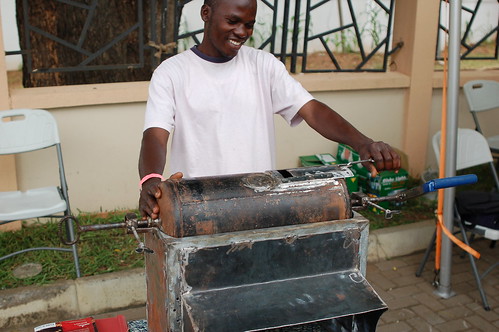This is part of an ongoing series of posts on the FLAP bag project, a collaborative effort by Timbuk2, Portable Light and Pop!Tech. We at AfriGadget are helping to field-test these bags that have solar power and lighting on them, and get interviews of the individuals using them.
Hayford Bempong and David Celestin are electricians at Accra Polytechnic, who I wrote about last as they had fabricated an FM radio station from scratch and used it at Maker Faire Africa. Hayford and David seemed like just the type to take a look at the bag and really determine its use. Being college-level students, they have a different type of lifestyle than many, and that might mean more ideas and thoughts about what the FLAP bag could be used for.
Electrical Students in Ghana take on the FLAP bag from WhiteAfrican on Vimeo.
True to form, they were not nearly as excited about the quality of the stitching, or the textiles used, but very interested in the internal electrical components. They were excited about the idea of a bag with an in-built solar panel, and were curious as to wattage and the ability use step-ups and inverters to make it even more useful.
One suggestion that they made was around durability of the electrical components, specifically they suggested that a metal box should be built around it. Life in Africa can be quite rough on gear, and the chance that someone will sit on, drop, or crush this part is quite high.

